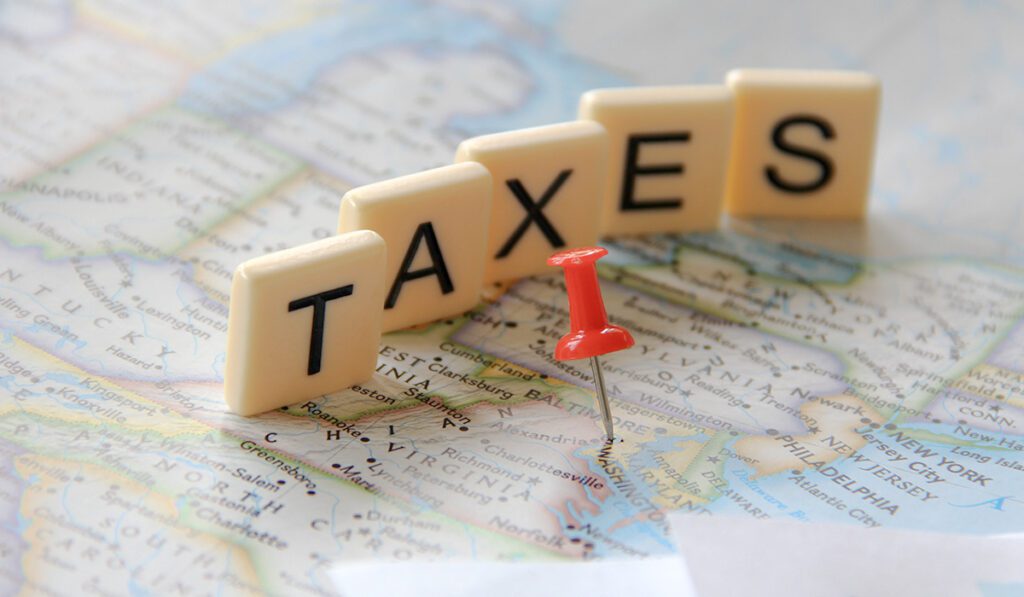

Are you a new business owner who wants to learn more about the withholding tax rate Singapore has, but has no idea where to begin?
Fret not, our experts at Premia TNC are here to clarify all your concerns and dispel all your doubts regarding all the important taxation matters for your business, including the withholding tax in Singapore.
Withholding tax is a term used to describe a certain amount of money that is deducted from an employee’s earnings and paid to the government. Withholding tax in Singapore is paid by non-residents who earn from Singapore-based companies or whose income is sourced from Singapore.
The withholding tax rate Singapore businesses are expected to pay vary depending on the type of payment and type of business entity transacting. There are also rules guiding the filing and payment of withholding taxes to the Inland Revenue Authority of Singapore.
This guideline contains information on all you need to know about the withholding tax rate Singapore offers and a simple guide to teach you how to file withholding tax.
Withholding Tax Rate Singapore: 9 Types Of Payments Subjected To Withholding Tax
Before diving into the withholding tax rate Singapore businesses are expected to pay, it is important to first know which payments are subjected to withholding tax. The following types of payments are subject to withholding tax in Singapore:
1. Loan or debt-related fees like commissions and interests
All interests charged on overdue trade accounts, commissions or loan fees, and interest credits paid to a non-resident of Singapore are charged for withholding tax.
2. Management fees
Payments to management service providers outside Singapore are charged for withholding tax. However, there are certain factors that dictate how and if the tax should be deducted such as your company’s agreement of double taxation and whether it is a permanent organization in Singapore.
3. Rent
Charges for movable properties paid to companies outside Singapore are subject to the withholding tax rate Singapore businesses are expected to pay.
4. Intellectual property, royalties, ad right of use
The withholding tax rate Singapore businesses are expected to pay is charged on royalties as well as payments made for the use of scientific, industrial, commercial, and technical knowledge for a business to a non-resident or even hiring a non-resident to help you apply these skills or expertise to your business.
5. Rendered services
Payments paid to non-residents of Singapore for services rendered such as equipment installation, consultation, technical support, training, and other related services are subject to the withholding tax rate Singapore businesses are expected to pay. However, services that are offered remotely are exempted.
6. Purchase of actual properties from a non-resident dealer or trader
Payments made for the purchase of properties like houses or cars in Singapore from a non-resident dealer or trader is subject to the withholding tax rate Singapore businesses are expected to pay.
7. Payouts on structured financial products
Payouts from structured financial products in Singapore to non-resident individuals or businesses are subject to the withholding tax rate Singapore businesses are expected to pay.
8. Dispersion of Real Estate Investment Trust (REIT)
Payments received from the REIT scheme in Singapore by non-resident individuals or companies are also subject to the withholding tax rate Singapore businesses are expected to pay.
9. Fees for the charter of aircraft or ships
Fees received by non-resident entities for the charter of aircraft or ships in Singapore are subject to the withholding tax rate Singapore businesses are expected to pay.
Withholding Tax Rate Singapore: How Are Non-Resident Companies Affected?
In Singapore, a company is termed a non-resident based on its main location or where decisions are being made. Companies that carry out major operations and decisions outside Singapore are termed non-resident companies.
Non-resident companies also include foreign companies invited by the government, other organizations or companies, or even private individuals to provide their products or services in Singapore. All non-resident companies are subject to the Singapore withholding tax and are liable to pay 15% of their gross income.
Withholding Tax Rate Singapore: How Are Non-Resident Individuals Affected?
Non-resident individuals are individuals who spend less than 183 days per year in Singapore. There are three categories of non-resident individuals, which include: board directors, foreign professionals, and public entertainers.
Board directors
Board directors are individuals that offer corporate services and do not spend up to 183 days of a calendar year in Singapore. Although board directors may hold positions in companies, they are only considered as companies when offering their services under the company. Board directors are charged 22% on all earnings, including salaries, accommodation, director’s fees, profits from shares and stocks, bonuses, and any other income.
Foreign professionals
Professionals who spend at least 183 days in a year in Singapore are called resident professionals. Foreign professionals are individuals from any of the following categories:
- Professionals invited from other countries by the government, other companies, or even private individuals who provide their services or offer consultation, training, or technical expertise
- Foreign speakers/academic from other countries conducting seminars or workshops in Singapore
- Members of the Queen’s Counsel
- Trainers, coaches, and consultants from other countries
The withholding tax rate Singapore charges on the gross income of foreign professionals is 15%.
Public entertainers
This group of non-resident individuals are those who only enter Singapore to perform or entertain a group of people. They usually include musicians, dancers, actors, poets, comedians, etc. public entertainers are charged 15% of all earnings for withholding tax in Singapore.
Withholding Tax Rate Singapore: What Are The Tax Rates?
Here are the withholding tax rate Singapore non-resident companies are expected to be charged for the different types of income:
| Type of Income | Tax rate |
| Loan or debt-related fees like commissions and interests | 15% |
| Management fees | Subject to the corresponding corporate tax rate |
| Rent | 15% |
| Services rendered | Subject to the corresponding corporate tax rate |
| Intellectual property, royalties, ad right of use | 10% |
| Purchase of actual properties from a non-resident dealer or trader | 15% |
| Payouts on structured financial products | 10% |
| Dispersion of Real Estate Investment Trust (REIT) | 10% |
| Fees for charter or aircraft or ships | 0-2% |
The withholding tax rate Singapore charges for non-resident individuals are as follows:
Non-resident individuals are charged 10% on their gross income for withholding tax but can be as high as 22% if the individual is being charged on net income.
Withholding Tax Rate Singapore: How To File Withholding Tax?
You can follow these steps to file the withholding tax rate for Singapore businesses are expected to pay with IRAS:
1. Authorize user for withholding tax filing platform
This step is important for people who are filing for the first time or if you want to change the filing platform user. Individuals without a registered company can only file personally; they cannot authorize a third party to do the filing for them.
However, organizations can authorize a third party to file for them by following these simple steps:
- Create a user account on Corppass for the individual that will make the payments to IRAS
- The Corppass user can now be assigned the S45 Withholding Tax (Filing) digital service
- Select the user to either be the preparer or approver
2.The preparer
The preparer can create a withholding tax filing and save it as a draft or send it to the approver. An acknowledgment page will let the preparer know if the submission was successful. However, the preparer cannot submit the withholding tax filing to IRAS.
3. The approver
The approver can create and complete a withholding tax filing or simply review the files sent by the preparer. The approver can submit the finished filing to IRAS.
Alternatively, a user can be granted access to all the e-services while setting up the Corppass account, which automatically makes the user an approver.
- If you’re filling for a Non-UEN entity, make sure to assign a Non-UEN-only digital service to the Corpass account user.
Note that this can only be done on Corpass by the administrator or sub-admin of the company in the presence of the third party.
4. Visit mytax.iras.gov.sg to file your withholding tax
After you have approved a user, you can proceed to file your withholding tax on the website using your Singpass to log in for either business tax or a business entity. There are two methods of filing:
- Using the S45 online filing; if you’re filing for a new record or
- The excel based S45 Offline Data Entry application, which is faster and easier for filing several records.
5. Go through the acknowledgment page and make your payment
Once your withholding tax is filed, you will be directed to an acknowledgment page. Do well to follow the instructions on making payments as at when due.
6. Check and download the S45 letters and notices
Once payment has been made, you can access your S45 letter and notices on the mytax.iras.gov.sg website to view and download them. The website is compatible with several browsers, including Google Chrome, Microsoft Edge, and Safari.
How We Can Help – Our Professional Taxation Services
Every business operating in Singapore must file for tax returns to the IRAS as stated by Singapore’s tax laws. Every business should have good knowledge of the tax systems in the country; however, keeping up with the constant changes and updates may become tedious.
You can consider hiring professional taxation services to ensure that your organization’s taxes are up to date and in compliance with the country’s tax laws.
At Premia TNC we offer corporate taxing services, including filing for withholding tax, investment allowances, approved royalties incentives, corporate tax incentives, property tax, customs and excise duty, and many others.
We are experienced and knowledgeable about the requirements for different taxes in Singapore. Our team also understand your concerns and work to ensure you don’t have to worry about them.
With our skills and expertise, we can ensure that your business gets the best tax results. We also offer advice and consultation services to help you make good decisions in compliance with the tax laws in Singapore.
Withholding Tax Rate In Singapore – Frequently Asked Questions
1. What happens if I miss the tax deadline?
Every company is given a month from the notice date to pay its tax. Failure to comply may attract severe penalties. A charge of 5% is added if payment is not made by the due date, and an additional monthly penalty of 1% for every month that the tax is not paid. Individuals or companies who do not pay their taxes for a significant period of time are liable to the following sanctions from the IRAS:
- Travel restrictions
- Sending bank or legal directives for the tax debts to be cleared
- Legal summons
- Shutting down of business operation
2. How do you calculate taxable income in Singapore?
Tax is charged on the net chargeable income of a company or business. The standard tax rate for companies is 17%. However, they may be charged on other income streams at varying rates.
You can calculate your taxable income by subtracting the tax-allowable total expenditure from the total taxable income. In other words,
Taxable income (corporate tax) = net chargeable income and corporate tax rate (17%)
3. Can I get tax credits for income from countries that do not have a tax treaty with Singapore?
Yes, you can. According to Article 50a of the Singapore Income Tax Act, businesses are qualified for unilateral tax credits for
- Earnings from professional services, consultancy, or technical expertise outside Singapore
- Earnings made by a foreign branch of a Singapore resident company
- Dividends
4. Are capital gains taxable for resident companies in Singapore?
Capital gains for resident companies in Singapore are exempted from taxation.
5. Is the profit distributed to shareholders by a company taxable?
Under the one-tier tax system, profits distributed by a company to its shareholders are not taxable. The tax paid by the company on its net income is the final tax, and the distributed profit will not be taxed.
6. Will my company still need to file for tax returns if we don't make any profit for the year?
Yes, every company is expected to file for a tax return annually, as stated in the Annual Filing Requirements for Singapore Companies.
7. What type of tax will a sole proprietor pay?
For businesses where only one person is the business owner, income is considered personal income. Hence, the sole proprietor is charged a personal tax.
8. Why do I need a professional corporate firm for my tax services?
Keeping the financial books for any business alongside running other aspects of the business can be very taxing, and it is highly likely for mistakes to be made that can cause you problems in the future.
Getting professional taxation services reduces your workload and allows you to focus on other aspects of your business. Rest assured that your taxes will be up to date and your company compliant with the Singapore tax laws.
9. Who is responsible for ensuring that corporate tax liability is met?
The company director is responsible for ensuring that all matters relating to the company’s corporate tax are handled. Alternatively, professional taxation services can be hired.




















